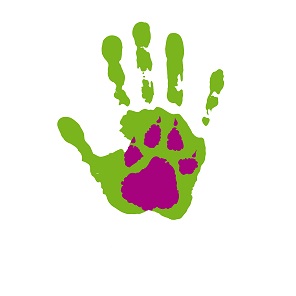How to Prevent Aggression Issues in High Drive Puppies

Two things happen when you bring a puppy home.
First, you can shape the puppies behavior. You can teach it how to behave in an urban environment. You can teach it that squirrels are not prey. And, you can teach the puppy that people are to be obeyed.
Second, you learn that you were not prepared for this puppy. You don’t have the skills needed to raise a working or herding puppy. Your puppy is learning to follow its instincts. As this happens, its willingness to listen to you diminishes.
Most people make the mistake of enrolling in obedience classes. Your puppy may love the class. Why not? It is working. It has a job and this is what it was bred to do. You feel confident. But after a week or two your puppy resorts back to its destructive behavior. If you’ve been using a force based (old style) obedience method you may find that your puppy’s behavior is degenerating into chaos fast.
The stress level in your home has skyrocketed. You are redirecting your frustration as anger towards your puppy. And, without realizing it, your puppy’s behavior spirals into more destruction, and more aggression. It seems like the more you try to help the worse things get.
Stop the Merry Go Round and Let Me Off!
Let’s just stop the merry-go-round. Most people do not realize that they are feeding their dog’s behavior. In my experience, if you increase the intensity of punishment for a working dog, the dog will increase the intensity of aggressive or destructive behavior.
Control – Take control of your environment. Do not let your puppy have free run of the house. Freedom needs to be earned.
Control – When your puppy is overstimulated then the game ends. When the puppy bites or starts to run frantically then it is emotionally ‘over threshold’. It is time for the puppy to have a time out.
Control – Learn to control your reaction. Many people with reactive dogs are very emotional. They get frustrated quickly. More important – they act on that frustration. If you are reactive then your dog may become reactive. In about 50% of the reactive dog issues I deal with it is necessary to teach the person to calmly control their own emotions before I can start helping the dog.
Control – Self-control is a learned behavior in dogs and in people. Puppies need to learn impulse control exercises. This goes hand-in-hand with brain games.
Control – Dogs are not lawn gnomes. You cannot ignore your dog, let it run loose in the house, and not spend at least 10 minutes a day training. If a dog is not interacting with you at home, it won’t interact with you in public or high stress situations.
Dogs are emotional animals. They become stressed. They become bored. And, they fear the unknown. The best thing you can do for your dog is to make it part of your life. Obedience isn’t a 30 minute exercise that starts and stops when you want to go for a walk. It is a lifestyle. It is a set of rules and boundaries that define how your dog interacts with your family and environment 24 hours a day.
